“The floods destroyed everything we knew” – children and their families are returning to their homes in Fangak, South Sudan after devastating flooding.
South Sudan has been hit by multiple shocks in the last years. Following a brutal conflict and the impact of the Covid-19 pandemic, floods washed away many villages, schools and livestock, forcing people to flee and leaving little to eat or farm.
FCA is helping them rebuild with funding from EU Civil Protection and Humanitarian Aid (ECHO).
“THIS IS the classroom that I used to learn in. It breaks my heart to see our school in this state.”
Nyaluak Kuach Khor, 17, stands in front of the wreckage of a building near pools of stagnant water, mud clinging to the battered foundations and to Nyaluak’s bare feet.
The teenager, who lives in a household of 30 people, depended on the classroom as a quiet place to study. When floods destroyed her school, she was devastated. Like many young people, going to class is so much more than lessons. It’s a place to find quiet, the support of friends and mentors, protection from the outside pressures of life, and the dream of choosing their own path in life.
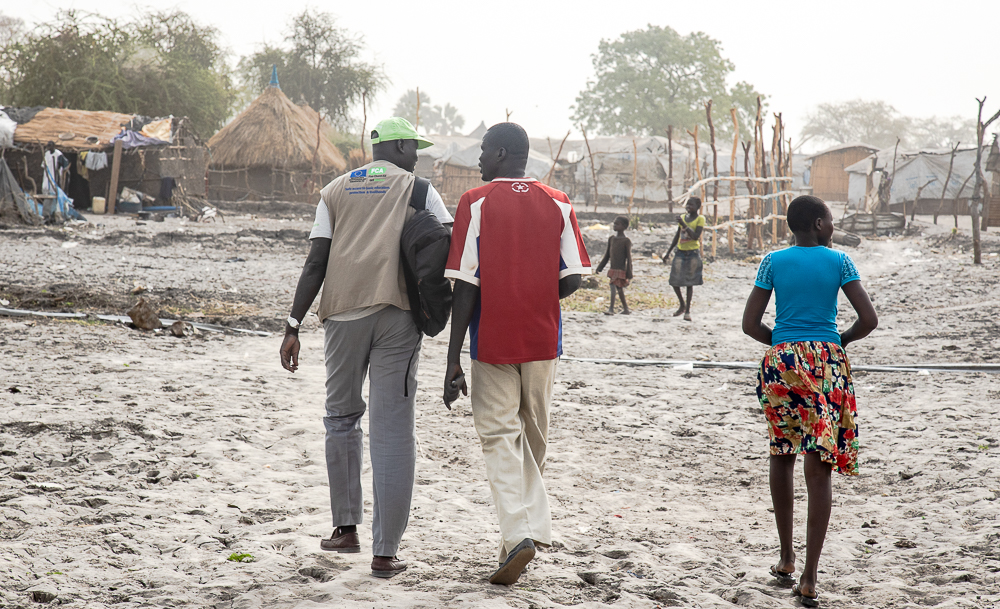
The United Nations office for the Coordination of Humanitarian Affairs (OCHA) estimates that in 2022 more than two-thirds of South Sudan’s population are in need of humanitarian assistance. That’s 8.9 million people and an increase of 600,000 since 2021.
One of Finn Church Aid’s key objectives is to ensure as many children and young people as possible have the opportunity to attend school and receive a quality education.
When historic flooding ravaged Fangak County in South Sudan in 2021, children lost their access to education. Parents lost their sources of income, as cattle were swept away and fields became unfarmable.
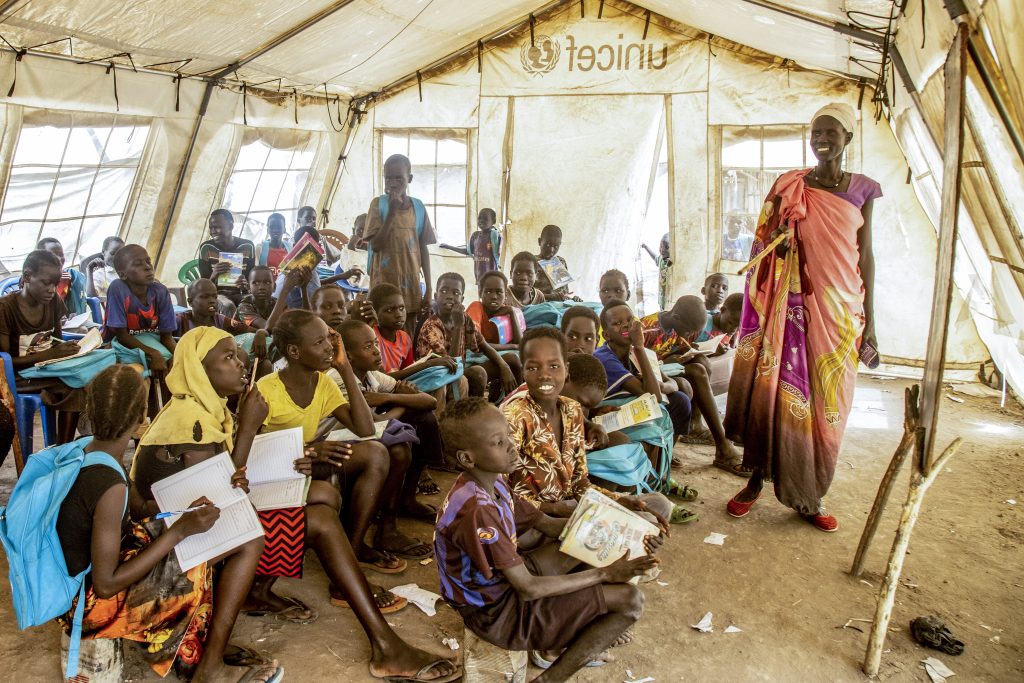
That’s why, with EU Humanitarian Aid (ECHO), we’ve been supporting over 10,000 pupils access schooling in the area. Our holistic project builds mobile learning spaces for children to continue their education in flexible, flood-responsive spaces. It also provides their parents with livelihood opportunities and school teachers with quality training.
With support, parents are able to afford to send their children to school and teachers feel supported in our shared mission to provide quality education for all.
Local people told us they fear a return of floods, as well as following drought, creating impossible environments for farming or habitation, as conditions lurch from one extreme to another. They are keenly aware these are the effects of climate change.
In the photos below, meet some of the students, teachers and parents, who are returning to Fangak.
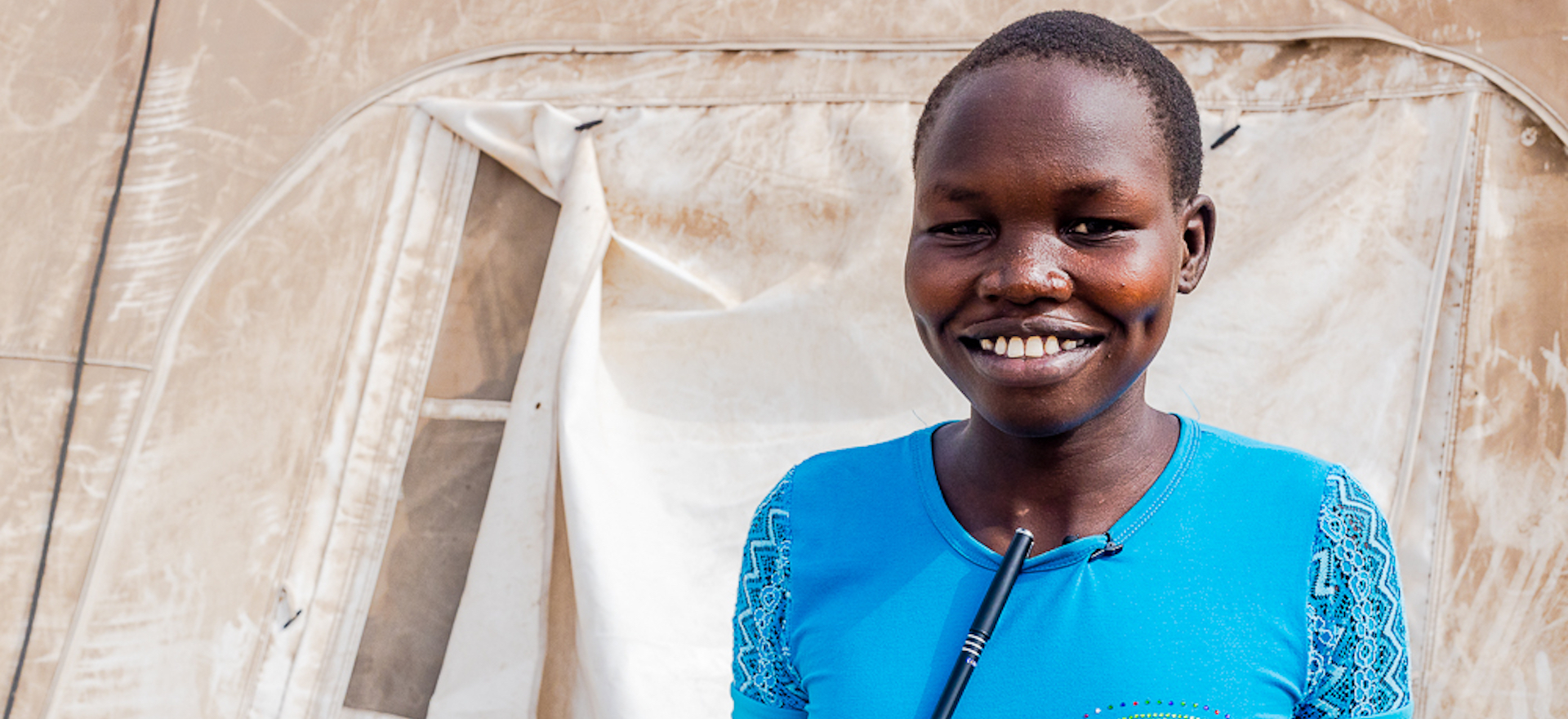
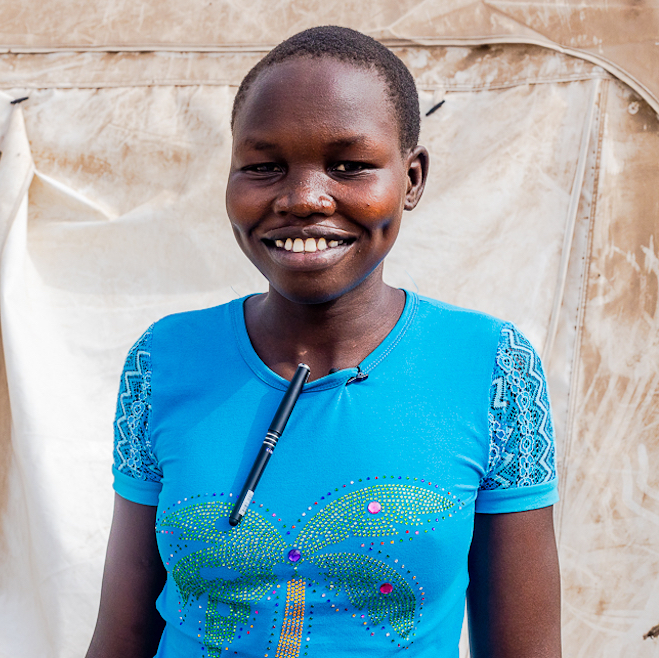
Nyaluak hopes to become a doctor
“Our village was totally submerged under water. All our learning facilities and learning material got destroyed. The biggest fear I have right now is the flood. We are scared that the floods may return and disrupt our learning and lives again.
The other is the fear of forced marriage. Most girls are forced into marriages under-age, and others without consent. Many are forced by their parents – especially fathers who want wealth. Girls are always more vulnerable here.
I lost one of my friends to early marriage. Her name is Nyatot. She was forced into marriage in year 4 of primary school and was terribly affected by it. Everyday she cried, pleading to her father to keep her in school, but he never listened to her. She has since been married off and now has one child. I’m really sad about it.”
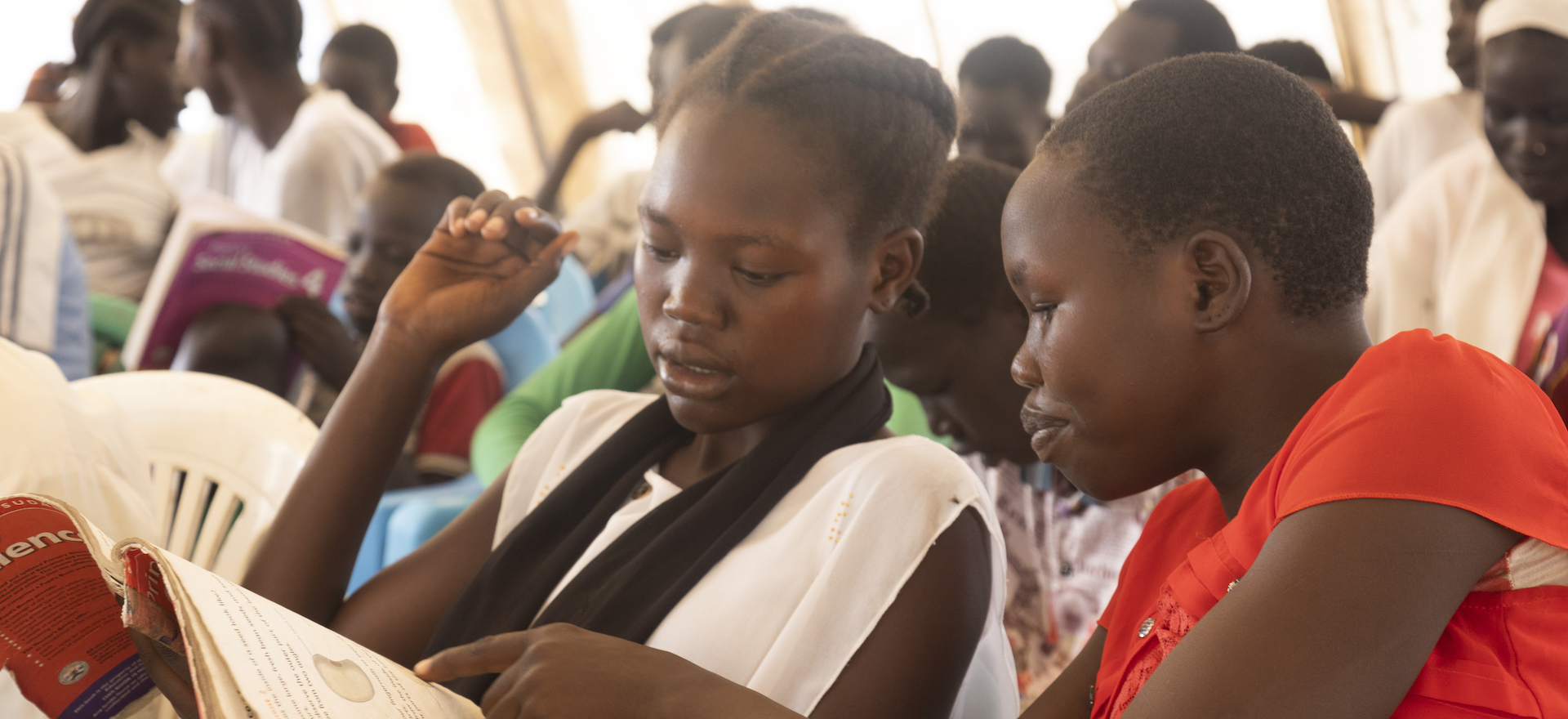
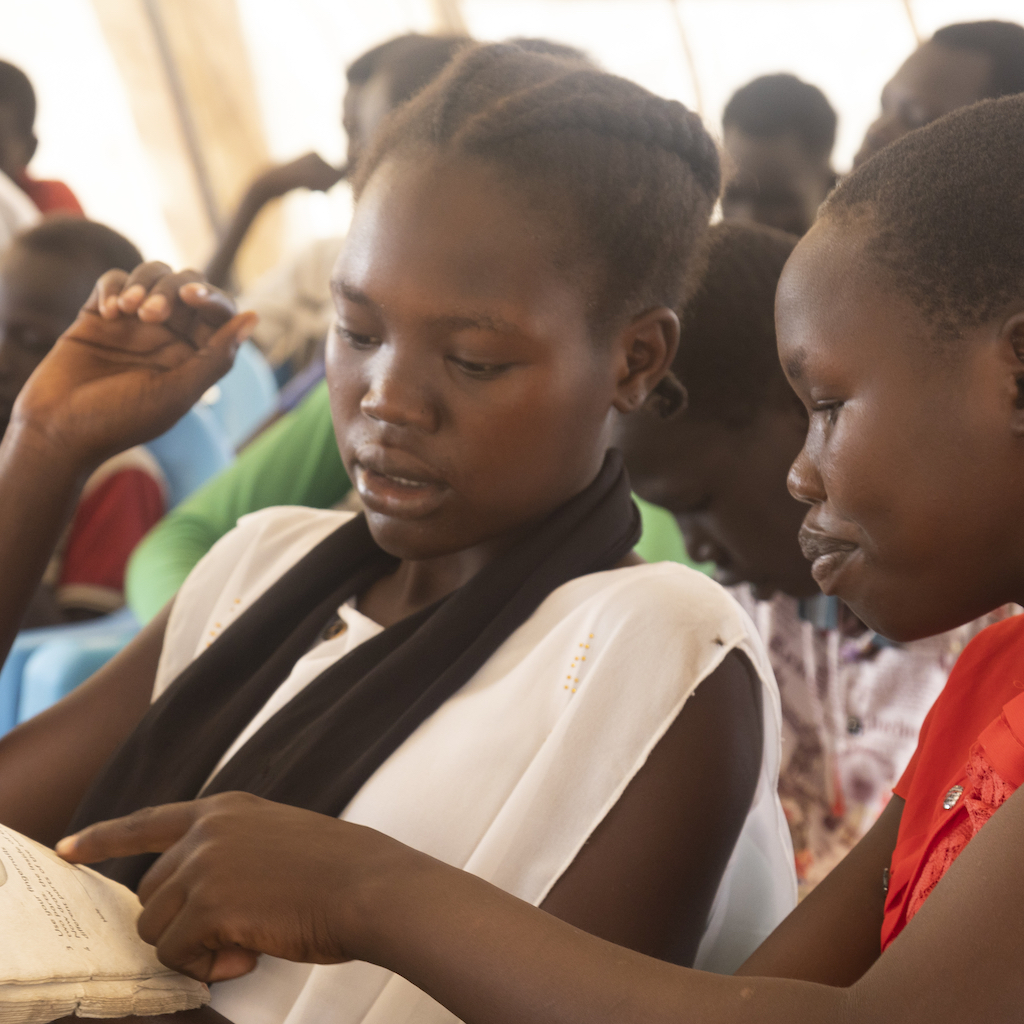
Nyareek Turuk Nyang dreams of becoming a pilot
“Being educated changes attitudes, it can even lead to peaceful resolutions of conflict. It cultivates peaceful coexistence between communities, more so with each generation. I will make sure that all my children receive a full education.
Our entire community was displaced by the floods which caused a complete reset in our lives. All of us were then subject to disease and hunger.
Food sources and farmlands were wiped out along with our homes. This meant that disease spread easily, augmented by the fact that people were living in close proximity to each other.”
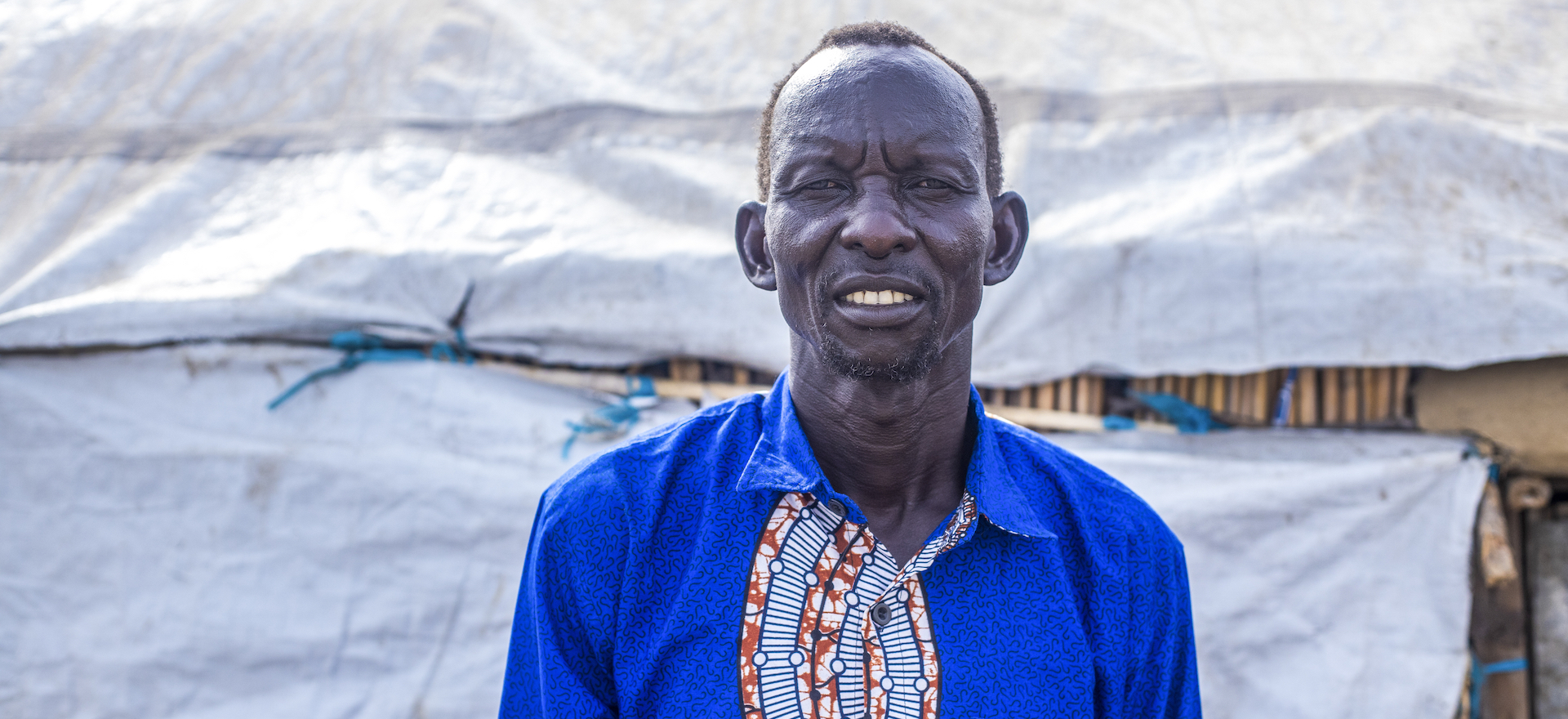
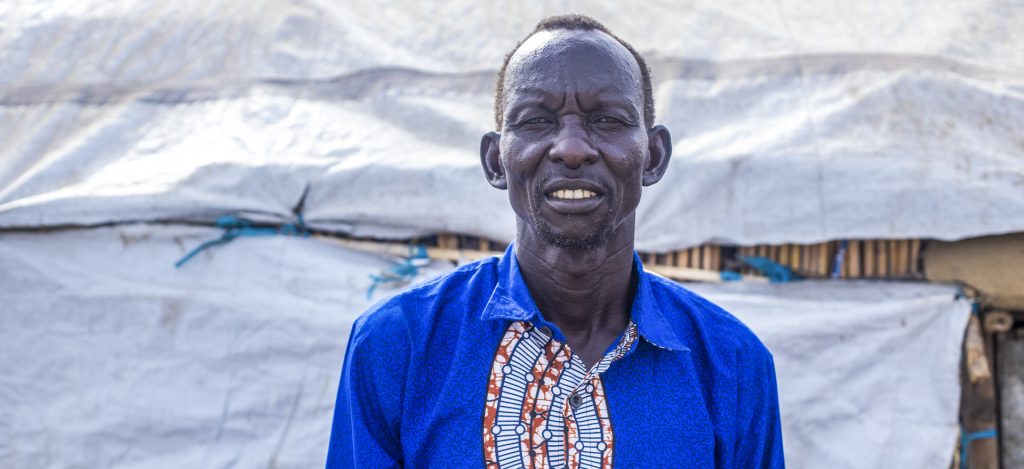
Simon received cash to support his disabled daughter
“I was a farmer like many other families before the floods. The deluge destroyed my land and everything on it. I have since had to change my entire lifestyle. I now spend my days fishing in what once was dry land. It is a struggle to survive from selling the fish that I catch.
The outlook was very bleak until Finn Church Aid stepped in and started to assist our community and many others around the country. I started to receive first hand assistance to help kickstart my new career as a fisherman. They gave me nets, hooks, and other equipment so that I could start taking care of my family once again.
Another devastating impact of the floods was the end of education for so many children. I have a 15-year-old daughter who is currently in level 3 of primary school. Due to her disability, Monica became a beneficiary of FCA’s programme. Their support has helped me ensure that she can get her education. The cash assistance allows me to guarantee that she has access to fresh, healthy food. This in turn improves her ability to concentrate and retain more knowledge. I can also buy her the supplies and equipment that she might need for school, such as pens, books, and bags. I want her to have all the tools she needs to succeed.”
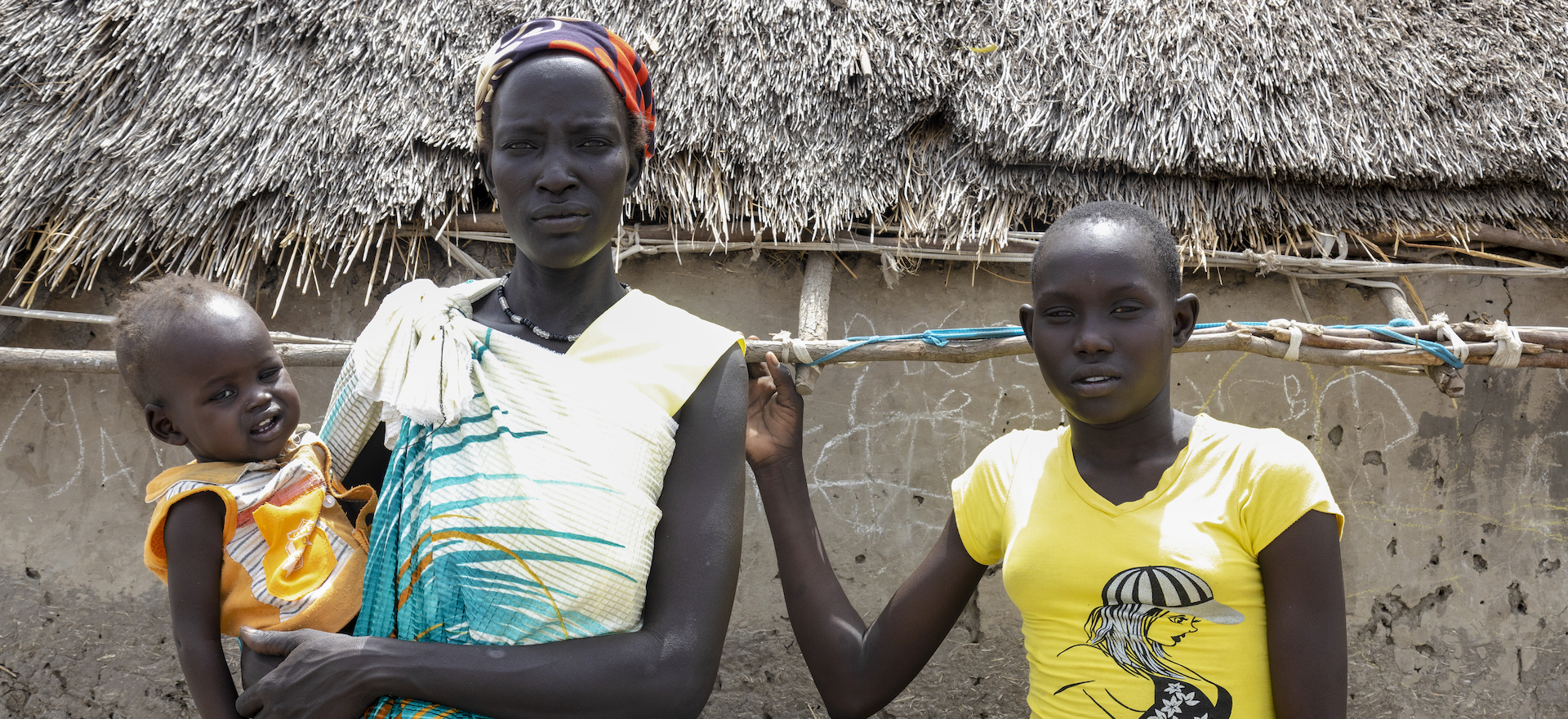
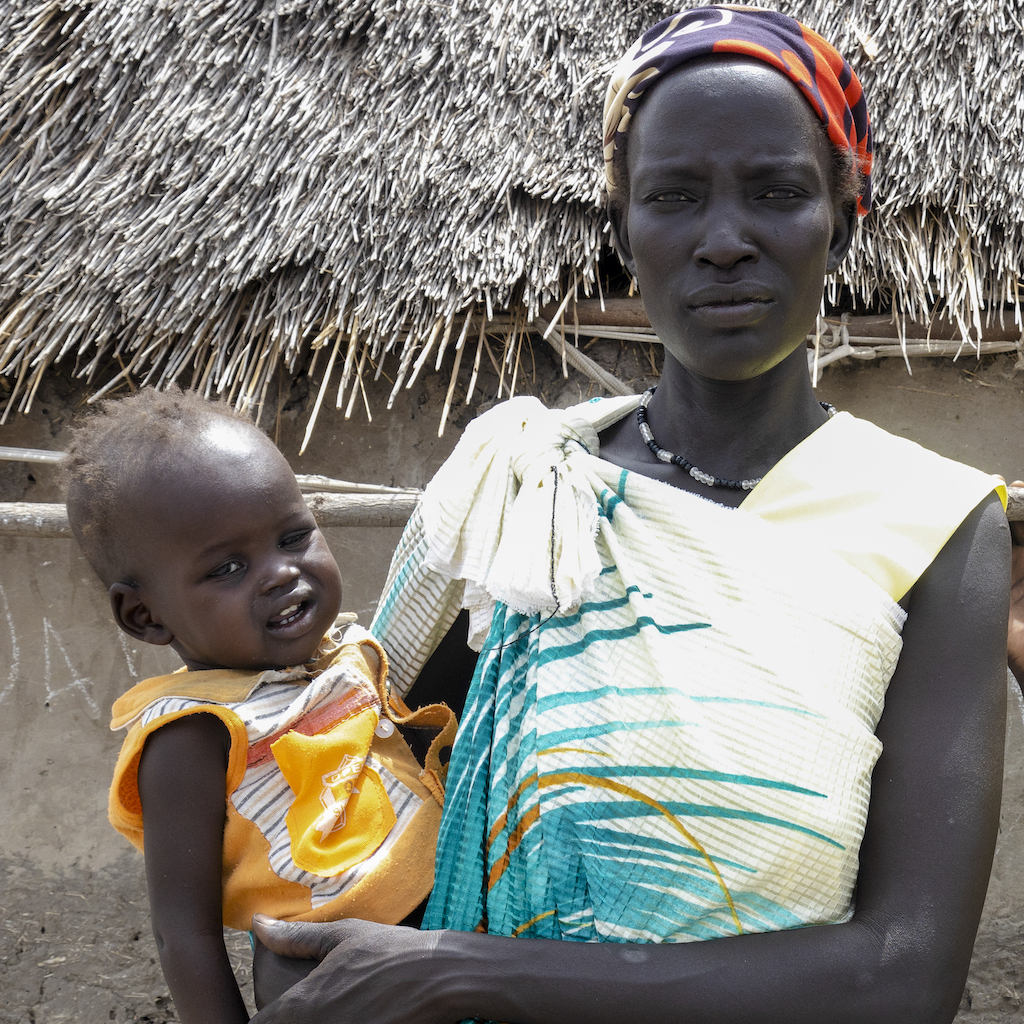
Nyahow fears the effects of climate change
“I am so grateful for the support that we have received through the cash assistance system provided by Finn Church Aid. It lets me buy things my kids need for school, such as stationary and other study materials.
These floods destroyed everything that we knew. We used to be farmers, we would make our living this way and were able to feed our families. The arable land was totally unusable after the floods. Now we are facing a terrible drought, and we haven’t even had time to recover from the floods. To survive, we have had to fish in the slowly disappearing water and eat any edible wild plants we find, like waterlilies.
Then this fierce dry heat started to spread, and we started to hear rumours about an approaching drought. Going from one extreme to the next was, and still is, unimaginably hard. Many of our crops are starting to fail due to the climate change, and I don’t know where we would be without assistance from Finn Church Aid.”
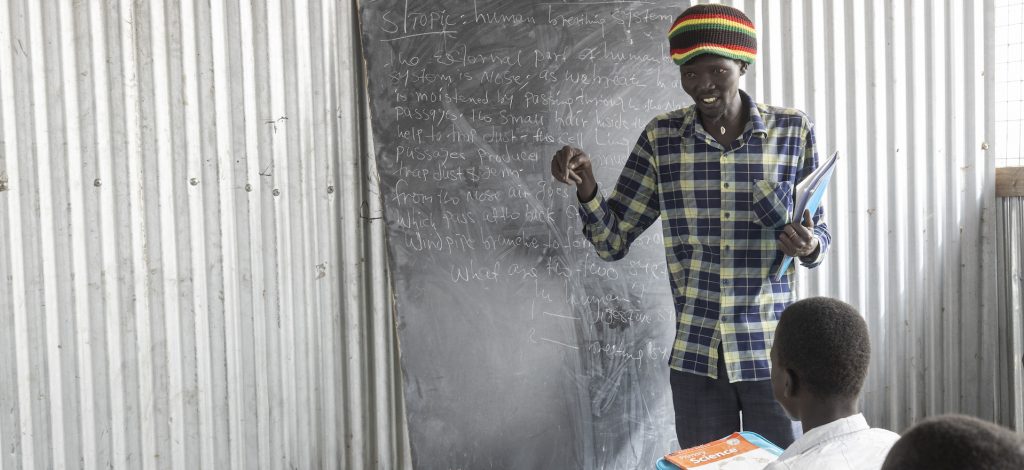
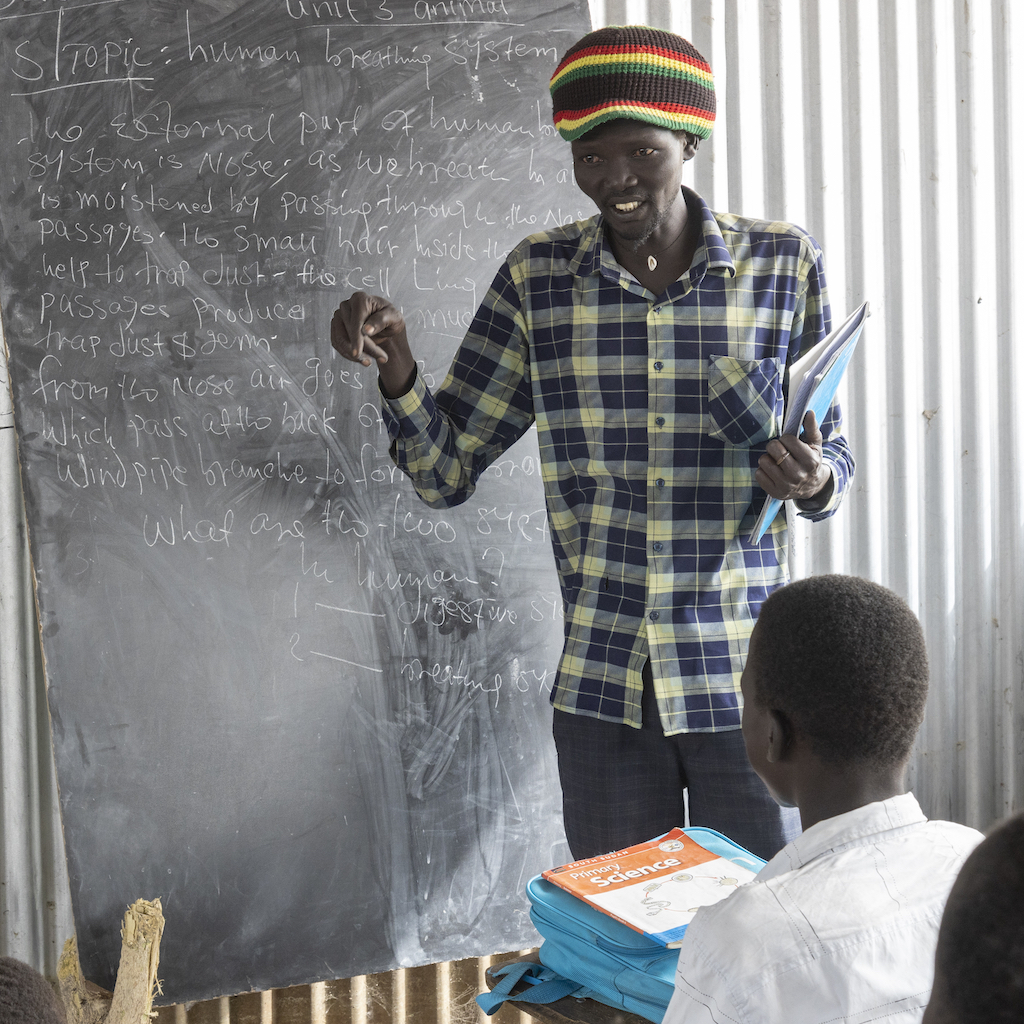
Lony, a science teacher, received training from FCA
“I find it very rewarding to come into work every day and cultivate young minds. Also, this training has made it easier to tell when a child is struggling in class. I now feel like I can go and console a child when they are confused or uncomfortable.
I went to school for the first time in 2001 at the age of 26, but continued studying every year until I finished my formal education in 2012.
Despite all the assistance we have received from Finn Church Aid, we still have a long way to go in improving the children’s education. More children want to start their education now because the community here can see first-hand the great work that Finn Church Aid are doing. Capacity is an issue; we are starting to run out of space. This means that we need more classrooms to be built to accommodate the needs of the community. This in turn means we need more teachers.”
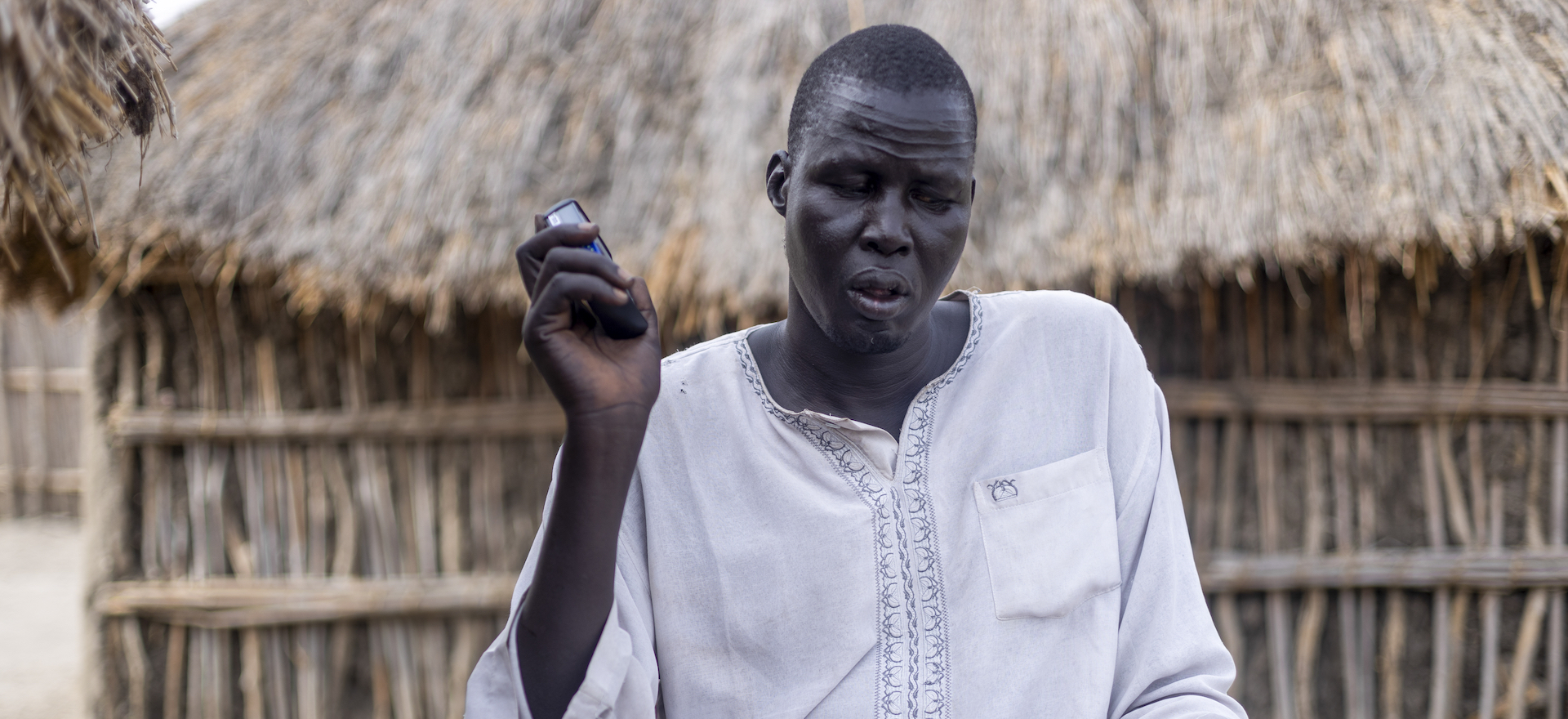
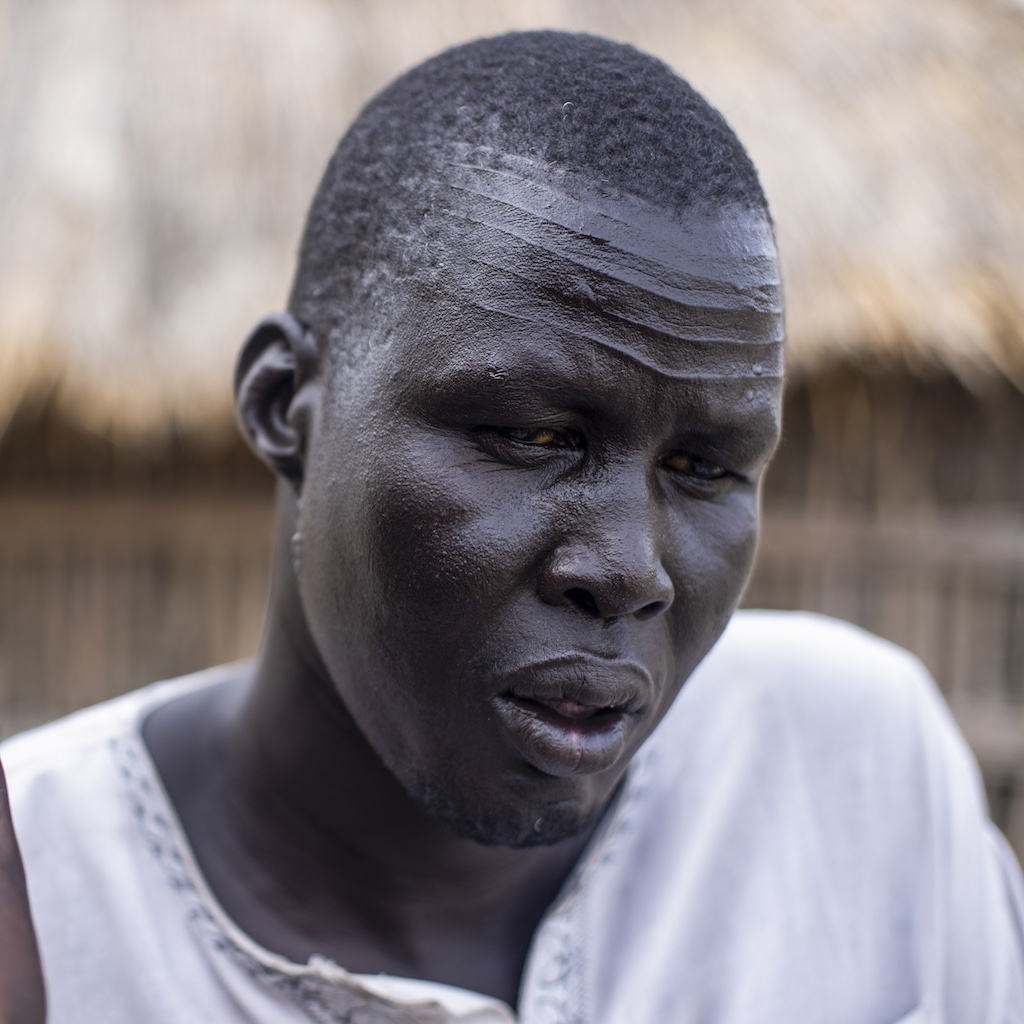
Nhial is a headteacher with a passion for education
“What I am trying to do is build the road to peace. I have brought people who have previously been involved in crime or armed groups to school, with the hope that they will find a new path in life. Some of them have become transformed people. I am fighting for this because I don’t believe in racism and segregation. You can unite all people.
I would like the world to know that education is the backbone of every country. It should be the first priority you give as a humanitarian agency. This community will not leave this area because when they see their children learning, there will be no problems even when they face a lot of hunger.
We appreciate Finn Church Aid; they have done a lot for this community for many years now. They built these schools and provided all the materials we needed, taught the teachers, and trained us to be the guardians of our schools. The exceptional training that we received is what made these schools great. Finn Church Aid taught us how to manage the school and classrooms, about teacher’s roles, well-being and how to conduct ourselves.”
Key facts
- We work with EU Humanitarian Aid (ECHO) funding in an innovative project to build the resilience of the population in New Fangak to respond to challenges, such as conflict and adverse weather conditions leading to a lack of food.
- Through a holistic method of improving schools, training teachers and assisting families of children with livelihood support, the whole community’s quality of life improves.
- In the last year, we’ve helped 10,397 children access quality education, supported 1,036 households with emergency cash and provided 211 teachers with training.
- In addition, we’ve helped families find alternative livelihoods, provided seeds and agricultural tools with relevant training. We also conduct door to door awareness campaigns on child protection and back to school information.
Text: Ruth Owen
Photos: Achuoth Deng